news
Davos: Africa boosts free trade while global barriers go up

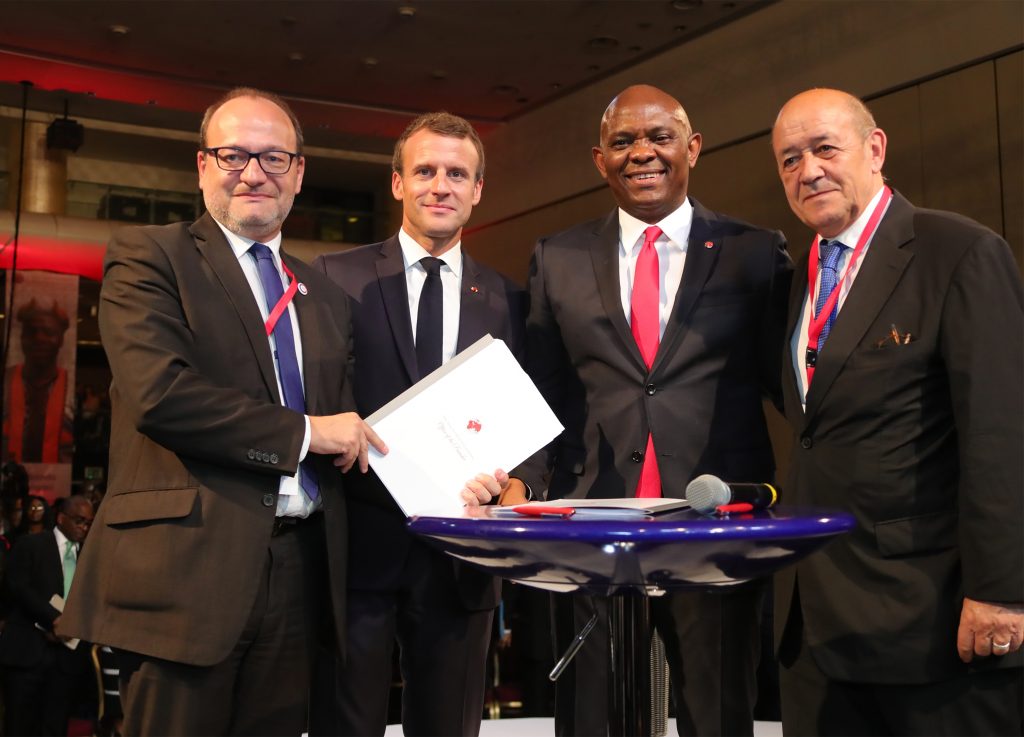
A new Aican free trade area could be just weeks away as the last few countries ratify an agreement signed last year. The plan to boost intra-African trade by half is gaining much attention in Davos this year.
When you ask Tony Elumelu if Africa would profit from free trade, the Nigerian entrepreneur and philanthropist does not have to think long. “If we look at other parts of the world, intra-regional trade helped significantly. For us to develop in Africa, we must embrace this,” he told DW at the World Economic Forum in Davos. “We need to develop and broaden the market. We need to integrate Africa by trade also.”
He might not have to wait much longer for this to happen. Last year, 49 African countries signed the Continental Free Trade Area (CFTA) agreement, which is supposed to do away with tariffs on most goods and other trade barriers.
The agreement will come into force once 22 countries have ratified it. With only seven more to go, it might only be a matter of weeks. So in times when others are erecting trade barriers once again, leaders on the continent are edging closer towards establishing the largest free trade area since the World Trade Organization’s inception.
It would create a market with a combined GDP of around three trillion dollars and, according to the African Union (AU), boost intra-African trade by 52 percent. As enterprises will get the chance to enter new markets, unemployment is predicted to fall and economic output to go up. And the effects in the long-run could be even more substantial.
Create value, attract investors
“Those nations who trade in raw materials are the ones that are poor. Those that actually trade in value-added products are the ones that are rich,” Akinwumi Adesina, president of the African Development Bank, explained. But as African economies will be able to cooperate more closely, he hopes companies will create more elaborate value chains to produce higher-quality goods.
Also, he considers the CFTA a big chance to attract investors. “Africa is open for business, the opportunities are there,” he said. “When people look at Africa, think of the population, think of the middle-class, think of the huge opportunities to invest across borders.”
Investments would come at a crucial time when it is estimated Africa lacks up to $100 billion (€88 billion) for infrastructure projects alone.
Making it work for the 99 percent
But as rosy as the economic future may seem, there are, of course, also challenges that governments will have to overcome. Winifred Byanyima, the head of Oxfam International, warned leaders of what freewheeling globalization can lead to.
“We have richer countries, richer companies, richer people gaining from trade liberalization and many others left behind,” she said. Whether Africans with lower incomes will also benefit from the CFTA would depend on what measures of success those in charge apply. “The most important measure is the good quality jobs that will be produced for our young people and for women.”
A new era — also for Nigeria?
Despite these words of caution, euphoria for the CFTA is high. Before Africa lies the beginning of a new economic era; and some regard it as only that, a start. Bernard Gautier of French investment company Wendel, for example, has already called for even deeper integration by means of common currencies.
And Tony Elumelu advocates to not only let goods flow freely. “We need to carry common passports or at least simplify the border entrance so that people can move freely intra-Africa. People who move freely can trade – and not otherwise,” the billionaire said.
news
Opeifa request for the state government to assist the Railway Police and Otti, thanks Tinubu for picking the best material to rewrite Nigeria Railway history

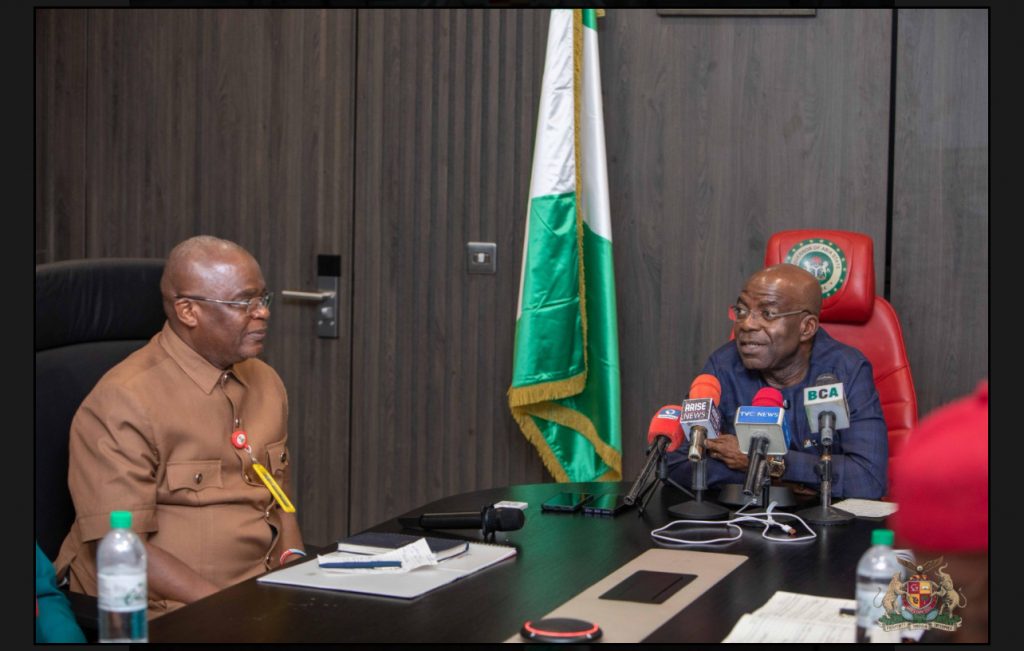 Gov. Otti describes Opeifa as a thorough-bred professional ready to rewrite Nigeria Railway history
Gov. Otti describes Opeifa as a thorough-bred professional ready to rewrite Nigeria Railway history
Lauds President Tinubu for picking the best material to reposition Nigeria’s oldest corporation
A deserving commendation came the way of the Managing Director of the Nigerian Railway Corporation, Dr Kayode Opeifa, as the Abia State Governor, His Excellency, Dr. Alex Otti, described him as an exceptional professional, most suitable to lead the Nigeria’s oldest surviving public corporation.
Governor Otti spoke on Wednesday, at the Government House in Abia State, during a business visit by the MD/CEO of the Nigerian Railway Corporation, as part of his familiarization tour of the Eastern District of the Corporation.
According to Governor Otti: “I have had so many engagements with past leaders of the Nigerian Railway Corporation, you are clearly different and knows the job”. He thanked President Bola Ahmed Tinubu for appointing Dr. Opeifa to lead the Nigerian Railway Corporation, expressing assurance at his ability to deliver.
He thanked the MD/CEO for promising to synergize with the Federal Ministry of Transportation, and the State Government to see that the transformation of the transportation system in Umuahia is achieved. According to the Governor, “Umuahia Bus terminal is progressing rapidly and we felt that it is important to replicate what we have in Paignton, United Kingdom in Umuahia, by linking the train station with the Terminal to enhance intermodal transportation services.
The Governor stated that he was very happy to see that the MD/CEO is committed to taking the track from Aba to Enugu and even beyond. He recalled, with nostalgia how the train had served the people of the state and regretted the downward trends of rain services across the entire South East.
On the MD/CEO’s request for the state government to assist the Railway Police in the state, Governor Otti promised that his government will provide mobility for Aba Railway Police.
He added that the state government is always ready to support the Federal Government institutions as users of such federal institutions are people of the state, adding that his administration cannot differentiate between federal and state government workers.
news
Airlin Advocacy Commissions Jos Office, Targets 7m Members By Next Elections,Says Mohammed Gamawa
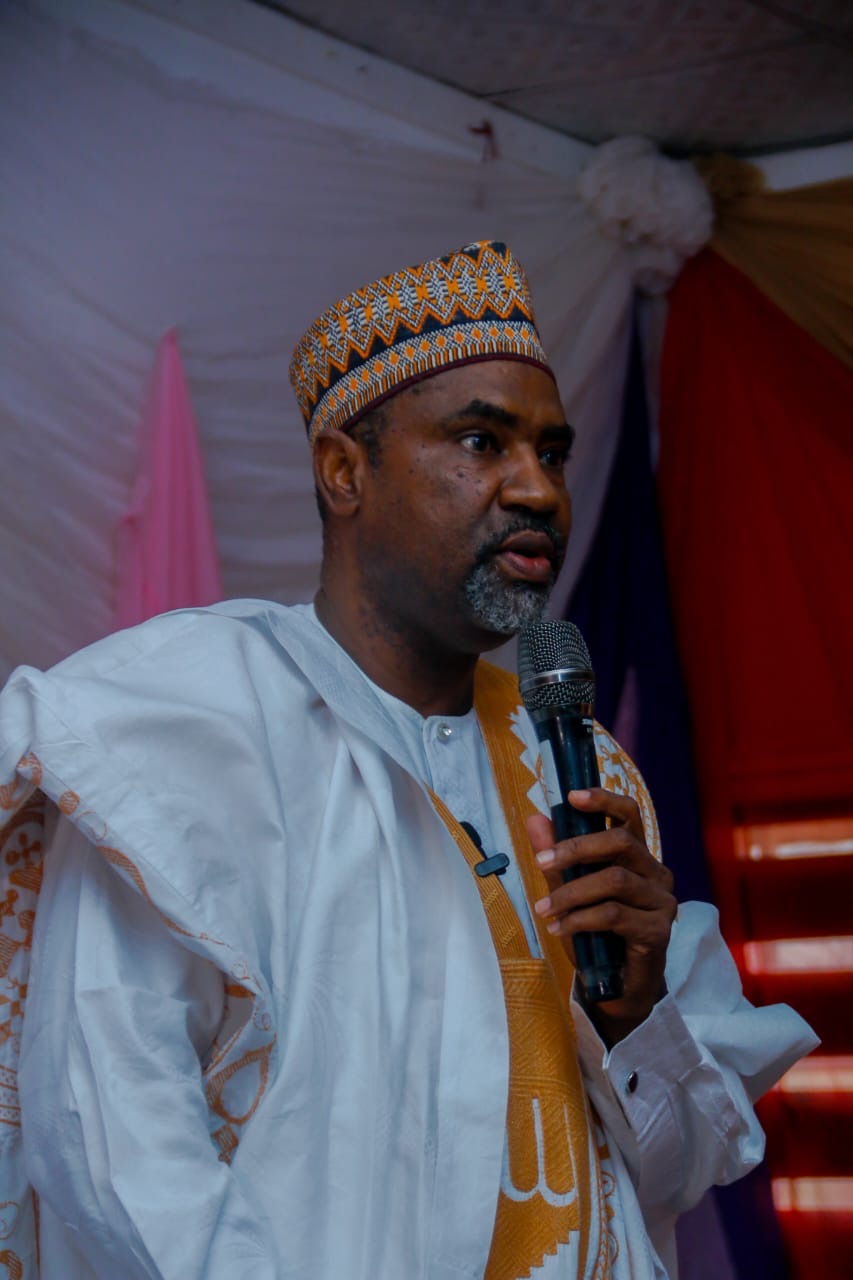
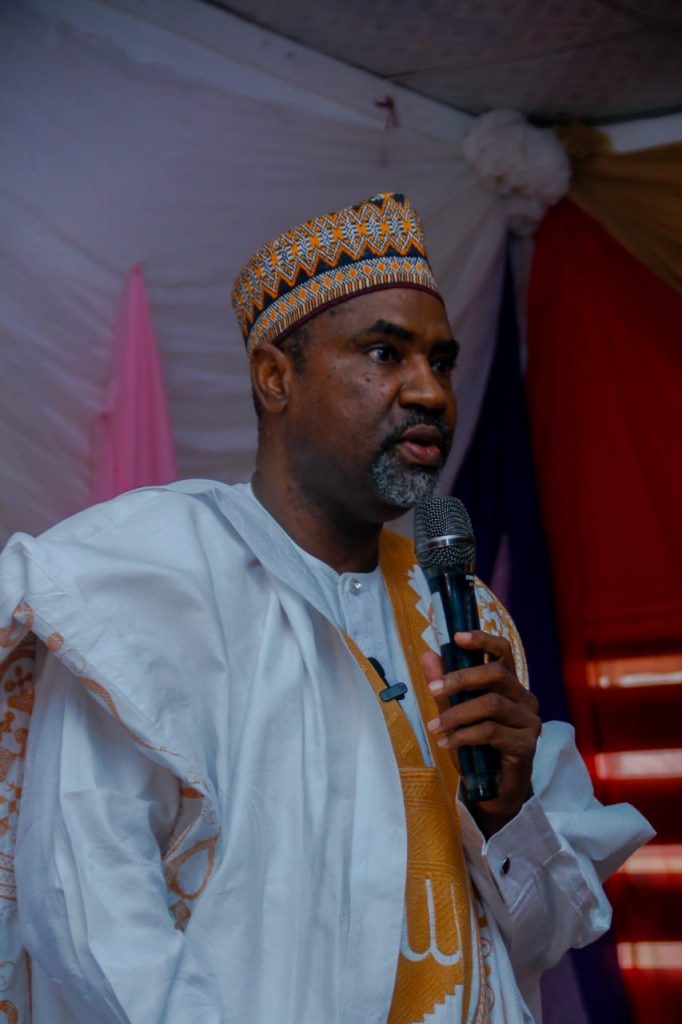 During the inauguration ceremony, the National Chairman of Airlin, Mohammed Gamawa, delivered a keynote address, emphasizing the organization’s commitment to educating Nigerians on their civic rights and responsibilities.
During the inauguration ceremony, the National Chairman of Airlin, Mohammed Gamawa, delivered a keynote address, emphasizing the organization’s commitment to educating Nigerians on their civic rights and responsibilities.
According to Gamawa, Airlin aims to bridge the gap between citizens and the principles of the rule of law by fostering a society where people understand not only their rights but also what is expected of them by the country.
“Our goal is to foster interaction among Nigerians, promote respect for the rule of law, and ensure citizens know their rights and civic responsibilities — such as voting to elect future leaders not based on materialism but based on integrity and competence,” Gamawa stated.
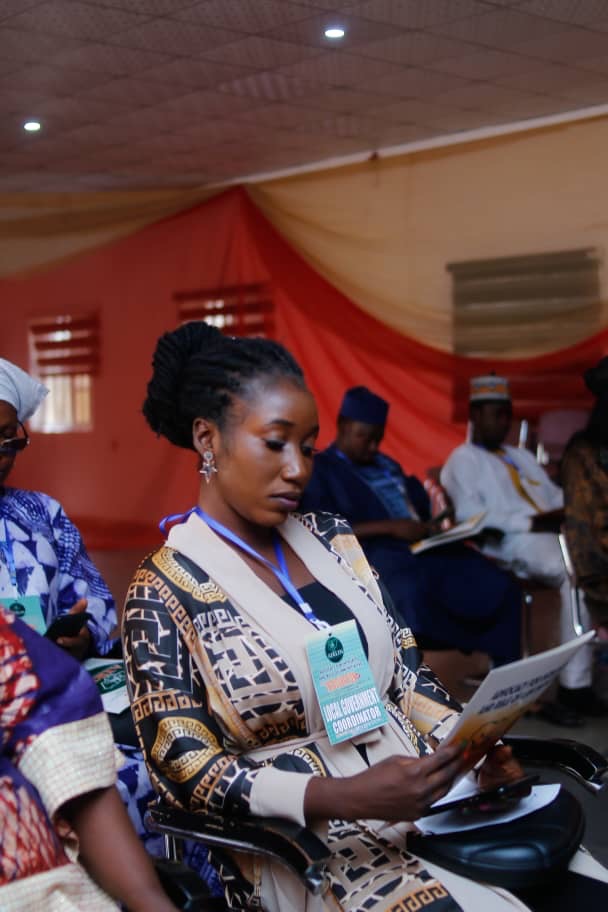
He added that understanding and exercising one’s franchise, especially during elections, must go hand in hand with being law-abiding and fully aware of civil responsibilities.
As part of its mission, Airlin is currently targeting 19 states in Northern Nigeria, with Jos becoming the 15th state to be commissioned.
The ceremony also featured the appointment of state and local government coordinators who will help drive the organization’s grassroots advocacy efforts.
With a current membership base of 2.1 million Nigerians aged 18 and above, Airlin projects a significant growth trajectory, aiming to reach 7 million members before the next general elections.
news
Nothing new in FBI report on Tinubu, says Onanuga
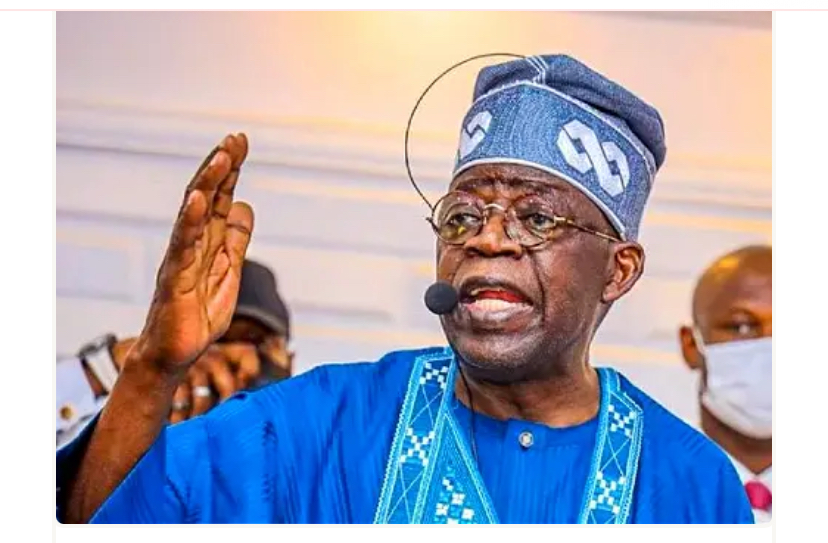
 Senior Special Adviser to the President on Information and Strategy Bayo Onanuga has dismissed a report of a United State (U.S.) court ordering two law enforcement agencies to release information on President Bola Ahmed Tinubu during a “purported federal investigation in the 1990s.”
Senior Special Adviser to the President on Information and Strategy Bayo Onanuga has dismissed a report of a United State (U.S.) court ordering two law enforcement agencies to release information on President Bola Ahmed Tinubu during a “purported federal investigation in the 1990s.”
In a tweet on his verified X handle, Onanuga told those agitated by the directive that there would be nothing revealing in the anticipated report.
In an April 9 ruling, District Court for the District of Columbia Judge, Beryl Howell ordered the Department of State, Federal Bureau of Investigation (FBI), Internal Revenue Service (IRS), Drug Enforcement Administration (DEA) and the Central Intelligence Agency (CIA) to release the information to Mr. Allan Greenspan.
The information being sought by Greenspan was classified as “confidential information” generated during a “purported federal investigation in the 1990s.”
Judge Howell said that protecting the information from public disclosure “is neither logical nor plausible.”
Commenting on the ruling, Onanuga said: “There is nothing new to be revealed. The report by Agent Moss of the FBI and the DEA report have been in the public space for more than 30 years. The reports did not indict the Nigerian leader”, Onanuga said yesterday.
He said that counsel to the President have been “examining the ruling”.
-

 news4 years ago
news4 years agoUPDATE: #ENDSARS: CCTV footage of Lekki shootings intact – Says Sanwo – Olu
-

 news1 year ago
news1 year agoEnvironmental Pollutions : OGONI COMMUNITY CRIES OUT, THREATENS TO SHUT DOWN FIRSTBANK,SHELL OIL COMPANY OPERATIONS FOR NOT PAYING COURT AWARD
-

 news3 weeks ago
news3 weeks agoBreaking : TInubu appoints Bashir Ojulari as new CEO group of NNPC and GMD mele kyari get sacked, Says Onanuga
-

 interview3 weeks ago
interview3 weeks agoNIGERIA MECHANIZED AGRO EXTENSION SERVICE PROJECT, A STRATEGIC MOVE TO ALLEVIATE POVERTY – DR. AMINU ABDULKADIR
-

 news3 weeks ago
news3 weeks agoUpdate : Fubara ordered bombing of Rivers Assembly, I am not under duress I resigned, Says ex-Rivers HoS Nwaeke
-

 news7 days ago
news7 days agoNothing new in FBI report on Tinubu, says Onanuga
-

 news3 weeks ago
news3 weeks agoTinubu commended Nandap for her leadership, extends Comptroller-General tenure till 2026, says Onanuga
-

 news2 weeks ago
news2 weeks agoUpdate : FG confirms continuation of crude, refined product sales in Naira initiative, Says Wale Edu


